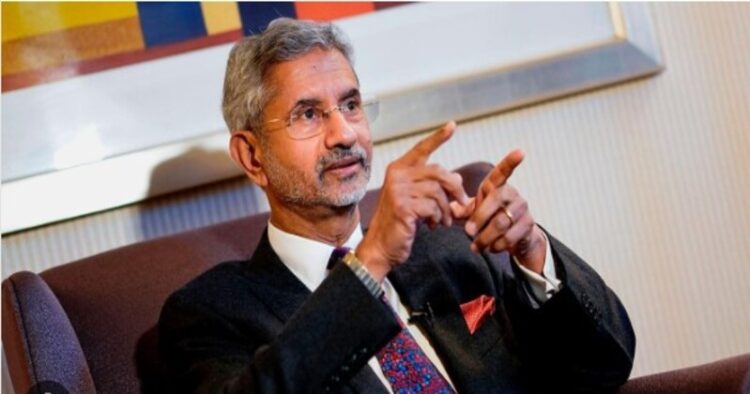The biggest fallacy of western exclusivism is that there hit-job like commentaries display their hasty generalisations. The sweeping comments from the advanced and liberal democracies are disappointing, but unsurprising. The skewed and incorrect perceptions they have built show that their notions are far from the ground realities prevailing in India.
Orientalism is very much alive. This is pretty much evident from MEA Dr S Jaishankar’s takeaway, where he reminded that tackling neo- Orientalism is not about India being on the edge or being disregarding of other cultures and civilisations. Instead, it means that the world needs to engage and be more accommodative of India’s point of view (POV). This applies to the external side, but the change begins at home as well. The internal churning has commenced.
India is done with playing safe at the cost of its credibility and becoming subservient to the imposed occidental double standards. The external minister’s remarks on the post-western monopolistic narrative was an argument for India’s own voice to be heard, not through some ventriloquists played by the great powers, which have themselves changed the landscape of the post-cold war era.
External Minister Jaishankar has called out something that was known, but spoken only in different undertones, which goes like that the existence of self proclaimed people with different ulterior motives coupled with what the West preaches, practices, its agendas and its objectivity (or paucity of it) should be accounted as factors.
EAM S Jaishankar points out that the previous governments who were run by left-liberal beliefs were always preoccupied with their search of some bigger cause than India’s own national interests. With new ideologies, new facets will replace the redundant strategies which do not adapt themselves to the current conditions. For example, prior to 2014 the historical left wing lobby had reservations with establishing or dealing with the US, but now the situation is quite the opposite.
Secondly, on the issues with China. EAM stated that the previous governments have even put Chinese interests above that of India’s. The current government has said a clear no and conveyed that now they won’t be dictating the terms, despite the cascading consequences.
Recently, PM Modi made a statement on India-China’s border issue, where mentioned that India seeks normalcy, which can be achieved only if peace and tranquility prevails on the border. However, this is not about departing from the tone on the policy which India has consistently maintained.
Taking economic considerations into place, India is looking at straightforward economics where a country’s manufacturing practices have created asymmetries and promoted monopolistic trends. India then becomes protectionist, to protect the interests of domestic manufacturers and industrial players, especially the SMEs, labour, and the working class. No matter how globalised the world is, defensive measures will prevail when national interests are at stake.
Those days are long gone when the powerful few who emerged as victorious out of a war defined what was geopolitically and geo-culturally acceptable and what was not. The multipolar world that India aspires for is not the revisionist perspective of the 19th century version of bottomless geopolitical competition.
It advocates a multipolar world that is essentially rooted in multipolarity, not some concealed principles of unipolarity or bipolarity. India bats for a multicultural world order where countries like itself are not just seen but heard as well. Equal footing and mutual respect are the cardinals.
India’s pragmatism for its own development and growth and the Global South does not share the vehement expansionist and hegemonic world view of China. India does not believe in the anti-western rhetorics as suitable foreign policy strategies. India’s realism has altered, the clear emphasis is on the national interests of India. India believes in defensive realism which does not mean to become antithetical to any mainstream considerations of the world order, which is starkly opposite to what China’s offensive realism is all about, to maximise power and become the unequivocal hegemon. The subset is based in the radical shift of the ideology that the Indian ecosystem has witnessed in the past ten years.
India is the world’s fifth largest economy, home to one-sixth of humanity’s population. India has a symbiotic relationship with both the worlds— encompassing both the rich G7 countries and the least developed nations. India can uphold its moral and political heft by leveraging such vantage points. India’s prerogative should be able to respond and not react.
India needs to outshine the narratives constructed on double standards. It should be able to pushback against the orchestrated portrayal of India in bad light— whether depicted by sections of western media or representatives of the states. However, it is also important to consider that India should not come across as hypersensitive to criticisms. Mature democracies respond with reasoned arguments, do not throw fits or knee-jerk sulks and avoid being duped by conspiracy theories.





















Comments